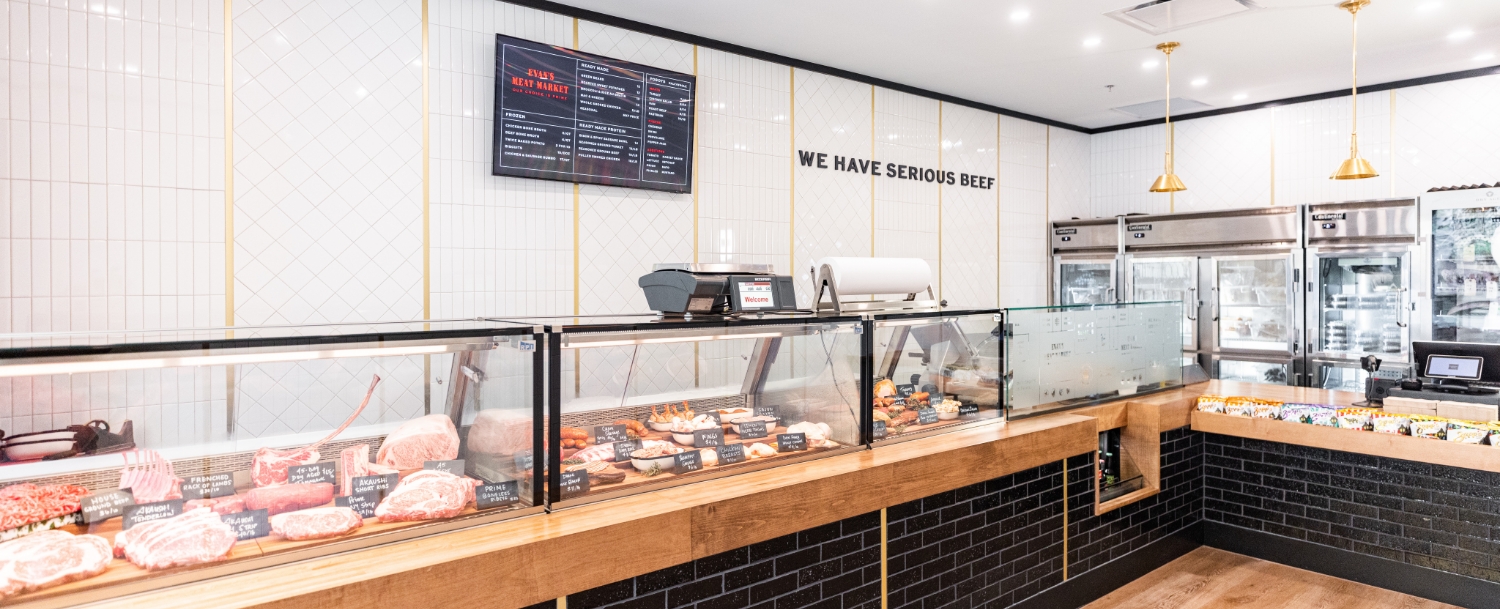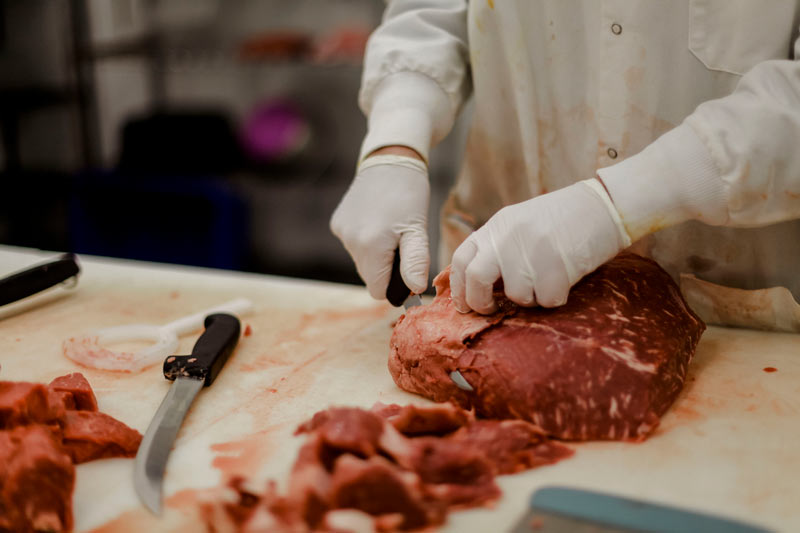Bagley Meat Market Edwardsville IL – Offering Fresh, Locally-Sourced Meat Options
Bagley Meat Market Edwardsville IL – Offering Fresh, Locally-Sourced Meat Options
Blog Article
Why Buying at a Local Meat Market Guarantees Fresh, High-Quality Cuts
Buying at a local meat market supplies unique benefits that commonly go undetected by consumers accustomed to larger retail chains. The ramifications of picking regional extend beyond immediate advantages, triggering a more detailed exam of what this choice truly implies for both customers and the neighborhood economy.
Advantages of Local Sourcing
In the world of food purchase, the advantages of regional sourcing stand apart plainly. By acquiring meat from regional markets, customers obtain straight accessibility to items that are often fresher and much more delicious than those found in bigger, industrial grocery stores. Neighborhood sourcing decreases the time and distance food travels from farm to table, which not only boosts preference but also preserves nutritional worth.

Furthermore, local sourcing commonly offers transparency regarding the origins of the meat. Customers can ask about the farming methods made use of, pet well-being criteria, and whether the meat is organic or grass-fed. This info empowers buyers to make enlightened decisions aligned with their worths.
Quality Assurance Specifications
Local meat markets usually follow rigorous top quality control requirements that ensure the products used fulfill high safety and security and quality criteria. These standards typically encompass different phases of the meat production procedure, from sourcing to dealing with and storage space.
First, neighborhood markets typically establish stringent provider requirements, making sure that just credible farms and producers are made use of - bagley meat market edwardsville il. This minimizes the possibility of contamination and advertises higher pet well-being requirements. In addition, many neighborhood meat markets apply normal assessments to verify that the meat is processed under hygienic problems, even more decreasing health and wellness risks
Temperature level control is an additional important element of quality control. Neighborhood meat markets regularly monitor refrigeration systems to preserve ideal storage temperatures, making sure that meat remains fresh and secure for intake. The application of traceability systems enables markets to track the origin of their products, offering transparency and responsibility.
Lastly, personnel at neighborhood meat markets are often educated to identify signs of putridity and understand proper handling techniques. This commitment to quality assurance not just elevates the total criterion of the meat yet likewise fosters customer trust fund, making neighborhood meat markets a reliable source for premium cuts.
Sustaining Local Farmers
Supporting neighborhood farmers is necessary for fostering a lasting food system and enhancing community resilience. When customers choose to patronize neighborhood meat markets, they straight add to the resources of farmers in their area. This not only sustains the regional economy but also reinforces the farming sector, making sure that it remains viable and vivid.


Furthermore, sustaining neighborhood farmers cultivates a sense of neighborhood and link in between customers and producers. It urges transparency in food sourcing and infuses trust fund, as customers can develop helpful resources relationships with the individuals that elevate their food. This straight link ultimately results in an extra involved and notified public, which is crucial for supporting for lasting agricultural techniques in the future.
Sustainable Practices
Lasting methods in meat markets play an essential function in promoting ecological stewardship and making sure animal welfare. Regional meat markets often focus on sourcing their items from ranches that implement ethical and sustainable farming approaches. These practices consist of rotational grazing, which aids preserve soil wellness and minimizes carbon discharges, together with minimizing making use of anti-biotics and hormones in animals.
Furthermore, local meat markets usually stress openness in their supply chains. Consumers are provided with info concerning the origin of their meat, permitting them to make educated choices that line up with their values. By sustaining local farmers who practice lasting methods, customers add to the conservation of biodiversity and the decrease of transport discharges connected with long-distance meat distribution.
In addition, several neighborhood meat markets involve in waste reduction approaches, such as making use of every component of the pet and advertising off-cuts that could otherwise go unsold. By fostering a much more lasting method to meat intake, these markets not only supply premium items but also add positively to the setting and pet welfare. Basically, purchasing at a local meat market aligns consumers with a more comprehensive motion in the direction of honest and responsible food sourcing.
Individualized Consumer Solution
Buying at a meat market usually incorporates more than simply the products supplied; it is also concerning the experience and the connections constructed between customers and staff. Customized consumer solution is a trademark of local meat markets, setting them besides bigger grocery store chains. Experienced personnel put in the time to recognize individual customer preferences, ensuring that each see is customized to certain demands.
Customers gain from experienced suggestions on cuts, cooking methods, and prep work ideas, fostering a sense of count on and loyalty. This tailored interaction permits clients to ask questions and look for recommendations, leading to notified getting decisions. Employee usually remember regular clients and their preferences, creating an inviting environment that cultivates neighborhood ties.
Additionally, tailored service extends to special demands, such as custom-made cuts or particular preparation approaches, which bigger sellers may not accommodate. This level of interest strengthens the commitment of regional meat markets to quality and client contentment.
Fundamentally, individualized client service not only boosts the purchasing experience however additionally ensures that customers entrust the most effective article items fit to their cooking needs, making every check out a fulfilling one.
Conclusion
Sustaining regional farmers cultivates community partnerships and strengthens the local economic climate, while lasting techniques add to ecological stewardship. In addition, individualized customer service improves the shopping experience, making neighborhood meat markets a preferred option for consumers looking for both quality and ethical factors to consider in their food sourcing.
The implications of choosing regional expand past immediate advantages, triggering a closer examination of what this selection genuinely implies for both consumers and the regional economy.
Sustaining local meat markets likewise contributes to the regional economic situation. Neighborhood meat markets regularly keep an eye on refrigeration systems to keep optimum storage space temperatures, ensuring that meat stays fresh and risk-free for usage.Local farmers are usually more attuned to the particular needs of their neighborhoods, elevating and growing plants livestock that straighten with regional preferences and choices. Sustaining neighborhood farmers cultivates community relationships and strengthens the local economic situation, while sustainable techniques add to environmental stewardship.
Report this page